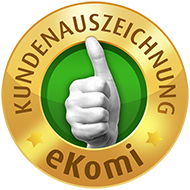The Schwa ǝ


Basics on the topic The Schwa ǝ
Some spelling patterns are not pronounced the way they appear. One of these unexpected vowel patterns is called the schwa. The schwa is simply a vowel that makes an unexpected short sound, not it’s normal one.
Most of the time, the schwa sounds very similar to a short U /ŭ/ or short I /ĭ/. This unexpected sound is actually the most common vowel sound in the English language! Any vowel can make the schwa sound, including some vowel pairs.
We can identify the schwa in writing by marking it with an upside down, lowercase E. The schwa is found in multisyllabic words in the unstressed syllables. An unstressed syllable is the syllable that we say quicker and quieter than others.
Although the schwa makes an unexpected sound, you can expect to find them in some common places. A good place to check for a schwa is in the second syllable of a two syllable word: as in rocket. Or the middle syllable of a three syllable word: like in telescope. If the letter A as its own syllable at the beginning of a word, it is usually a schwa, or if it ends a multisyllabic word, like the examples alarm or data.
Transcript The Schwa ǝ
Dee and Kala peer out into the vastness of the universe. But just as they are about to leap full-speed into deep space, these little unexpected sounds start coming from behind them! It that a group of stowaway vowels? “Are those hiccups?!” “No, Dee, I believe that sound is called a schwa.” "A what?" Let's help clear up the confusion by learning more about, "The Schwa." Some spelling patterns are not pronounced the way they appear. One of these unexpected vowel patterns is called the schwa. The schwa is simply a vowel that makes an unexpected short sound, not it’s normal one. Most of the time, the schwa sounds very similar to a short U /ŭ/ or short I /ĭ/. This unexpected sound is actually the most common vowel sound in the English language! Any vowel can make the schwa sound, including some vowel pairs. Let’s look at the word, planet, as an example. The E in planet is a schwa! We would expect the E to say /eh/ like in egg, BUT it doesn’t! It sounds more like a short I /ĭ/ here. If we read planet using the expected short E sound, /eh/, we would say it plan-et. But we don’t; we say plan-it. We can identify the schwa in writing by marking it with an upside down, lowercase E. The schwa is found in multisyllabic words in the unstressed syllables. An unstressed syllable is the syllable that we say quicker and quieter than others. We can hear this again in the example word plant -it. The schwa is in the second syllable, which is said quicker and quieter than the first. Although the schwa makes an unexpected sound, you can expect to find them in some common places. A good place to check for a schwa is in the second syllable of a two syllable word: as in rocket. Or the middle syllable of a three syllable word: like in telescope. If the letter A as its own syllable at the beginning of a word, it is usually a schwa, or if it ends a multisyllabic word, like the examples alarm or data. Now that we’ve learned about the schwa, let’s try to identify the unexpected vowel sound in the following words: The E because it makes an unexpected /ĭ/ sound rather than its normal short /eh/ sound. It is also in a common spot: the second, unstressed syllable of a two syllable word! Which vowel is the schwa in the word: astronaut? The O because it makes an unexpected /ŭ/ sound rather than its normal long /o/ sound. It is in a common spot: the middle syllable in a three syllable word! While Dee and Kala quiet the vowel stowaways, let's remember! Today we learned about the schwa! The schwa is simply a vowel that makes an unexpected short sound, not it’s normal one. Most of the time, the schwa sounds very similar to a short U /ŭ/ or short I /ĭ/ We can identify a schwa in writing by marking it with an upside down, lowercase E. Common places to find the schwa are: The second, unstressed syllable of a two syllable word, the middle syllable of a three syllable word, and the letter A at the beginning and end of a multisyllabic word. “Burp!.” "Excuse me, I think I drank my soda too quickly.” "Shhh! Now that those vowels are finally quiet, I want to hear the movie."















